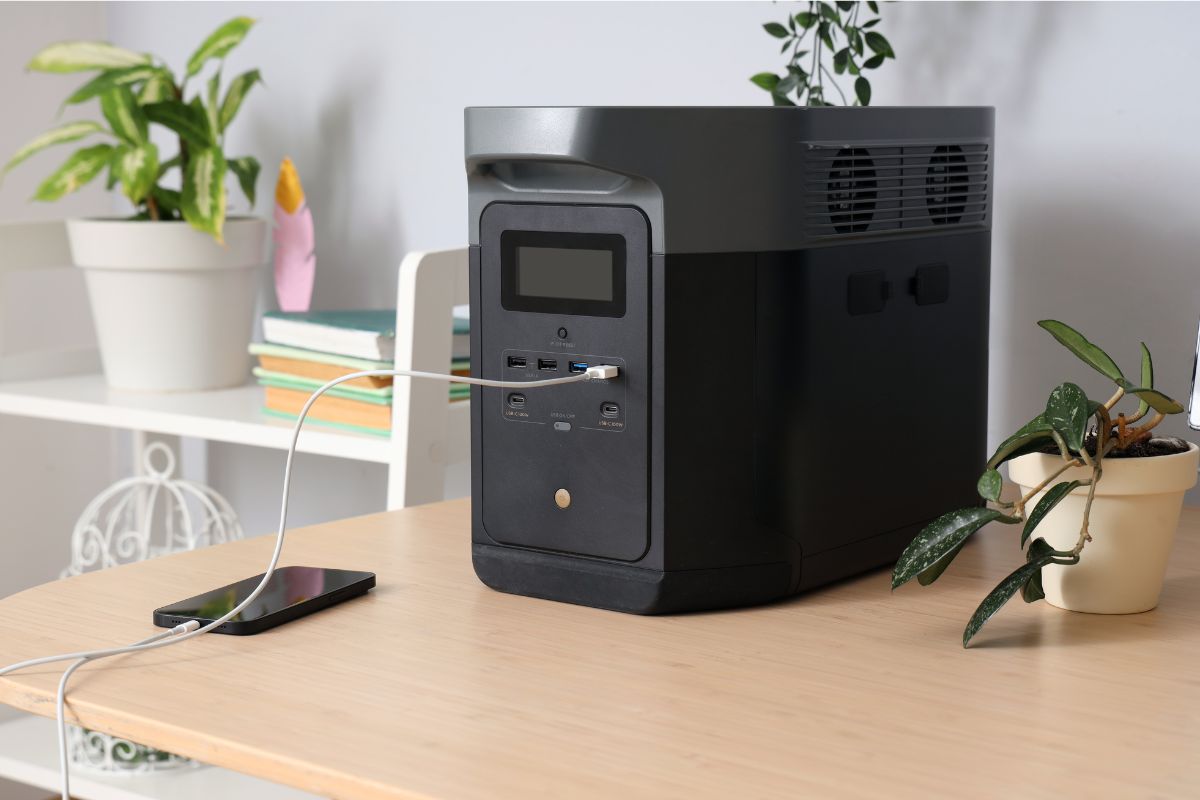If you’re responsible for ensuring business-critical systems stay up and running, then you’ll want to invest in a reliable and durable system to protect against power disruptions, such as an Uninterruptible Power Supply (UPS) system designed to safeguard your critical assets.
The best systems go beyond just providing power outage protection and are essential to ensure continuous productivity. We’ve taken a deep dive into the world of UPS systems and produced a guide on what you need to know:
Why You Need a UPS System
The cost of a power outage for any business can be huge in terms of downtime, risk of data loss, and increased costs. Some people think that having a generator is a suitable alternative to a UPS system, however, generators take time to start up which means business critical systems will still experience some power loss and will shut down incorrectly.
A UPS can be used to bridge the gap between a power outage and a generator kicking in. Unlike a generator, even a basic UPS system will ensure there is a stable supply of power even during a power outage to enable proper shutdown of equipment.
However, a premium quality UPS can provide many other benefits too, such as guarding your equipment against power surges and other electrical disturbances and providing a smooth and constant power supply at all times. A UPS combined with a generator and power management software solutions can provide complete peace of mind.
Choosing the Right Supplier for Your UPS System
When you’re looking for a supplier for the best UPS Australia has to offer, there are a few things to consider. Choose a supplier who offers a wide range of UPS systems as well as spare or replacement parts.
Make sure they are more than just box shifters, as choosing and installing a UPS system can be complicated, but the best suppliers will not only let you know which system is right for you but will also offer professional installation.
In addition, the best suppliers will offer maintenance contracts to keep the system in tip-top running order and ongoing contracts with 24/7 support. Other things to take into consideration are costs, reputation, experience, and customer service.
Choosing the right UPS System
There is no one-size-fits-all when it comes to UPS, but in simple terms, you need a system designed to give you enough time to safely shut down your hardware in the event of a total power failure. The amount of power a UPS will provide depends on its VA rating which could typically be anywhere between 650 and 100,000, however, you also need to consider the total load connected to it which can be difficult to determine for larger organizations and businesses.
The best suppliers will be able to send qualified specialists to your location to determine your needs as well as provide advice over the phone if you have the relevant information about your setup. Choosing the correct size is critical, as purchasing the wrong system could leave your hardware vulnerable to power outages or surges. When deciding which UPS remember to consider any expansion plans so that you can choose a future-proof system.
Installing and Commissioning A UPS System
When properly installed, a UPS system can enhance efficiency by providing stable power, protecting equipment, and preventing costly downtime. Small basic UPS systems less than 1500VA can be installed quite easily with a plug-and-play approach, although it is recommended that a professional commissions and sets up the UPS parameters to avoid potential safety risks.
Anything over 15,00VA should be installed by a trained professional, and the best suppliers will have experienced technicians who can carry out pre-site surveys, plan, project manage, unpack, assemble, and carry out the electrical installation and wiring correctly and safely. Commissioning by competent professionals gives you peace of mind that the system will operate correctly when it is needed. Click here for information on cable management.
Maintaining The UPS System
Like most things, a UPS system requires maintenance to keep it running at maximum efficiency, so a regime of preventative maintenance should be carried out regularly, and the best suppliers will offer maintenance contracts and services to prevent problems before they happen.
A key component of a UPS system is the batteries which don’t last forever, however, the best suppliers will offer a battery replacement service to help minimize the risk of battery failure by replacing them within the recommended period, as well as disposing of the old batteries via a government approved recognised organization. Click here for information on business and government waste reduction and recovery.
Choosing your UPS system is an important decision, whether you’re a hospital, responsible for people’s lives, or a business where data loss would significantly impact your ability to function. The choice of supplier is key to ensuring you have a system you can rely on when you need it, and choosing a supplier who can advise on the system, install, maintain, repair, service and support it will give you complete peace of mind.
















